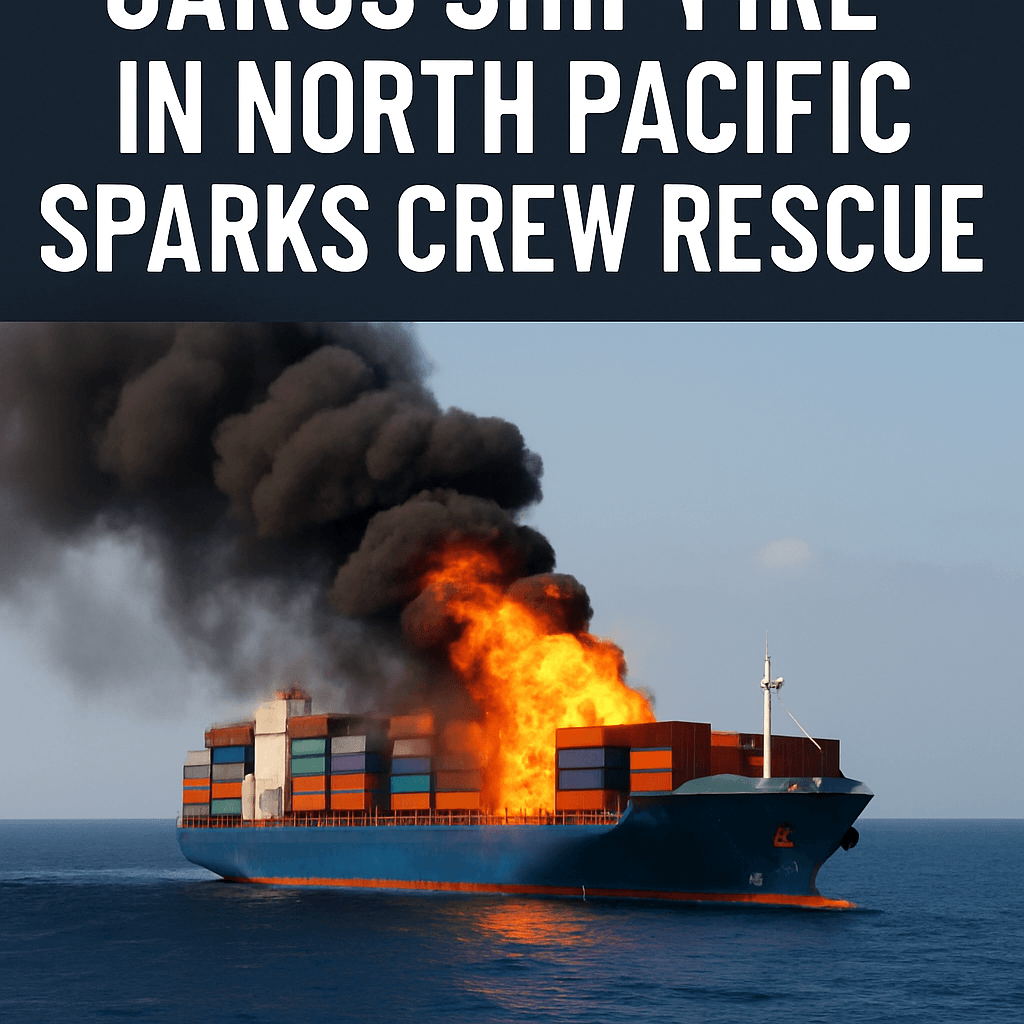Cargo Ship Fire in North Pacific Sparks Crew Rescue

The crew of the Morning Midas, a cargo vessel transporting 3,000 vehicles, including 800 electric vehicles, to Mexico, was forced to abandon ship following an uncontrollable fire in the waters off Alaska’s Aleutian Islands. This incident has raised significant concerns regarding maritime safety, particularly concerning the transport of electric vehicles on large cargo ships.
Incident Overview
On Tuesday, the fire was first detected at the stern of the 600-foot (183-meter) ship, with a visible plume of smoke reportedly emanating from the deck that housed the electric vehicles. According to images released by the U.S. Coast Guard, the situation escalated quickly, necessitating immediate evacuation procedures as hopes to control the fire using the onboard fire suppression system proved ineffective.
Evacuation and Rescue Efforts
The vessel, registered under the Liberian flag, had a crew of 22 members who efficiently executed their emergency protocols by abandoning ship and transferring to a lifeboat. Fortunately, they were promptly rescued by the crew of the Cosco Hellas, a nearby merchant vessel, located approximately 300 miles (490 kilometers) southwest of Adak Island, which is situated about 1,200 miles (1,930 kilometers) west of Anchorage.
Coast Guard Response
The U.S. Coast Guard’s Seventeenth District quickly mobilized aircrews and ocean-going assets to assess and respond to the situation. As of Wednesday afternoon, the status of the fire was still uncertain, as smoke continued to emanate from the ship. In a statement, Rear Admiral Megan Dean expressed gratitude for the selfless actions of the crew of the Cosco Hellas and highlighted that safeguarding both the well-being of the crew and the marine environment remains the top priority.
Environmental Concerns
In light of this incident, the U.S. Coast Guard and Zodiac Maritime have initiated safety protocols to mitigate the environmental impact of any potential pollutants leaking from the vessel. The presence of numerous electric vehicles aboard raises particular concerns, as lithium-ion batteries, when compromised, can lead to hazardous situations such as thermal runaway fires, potentially releasing toxic substances into the ocean.
Broader Safety Issues in Maritime Transport
This incident comes on the heels of a deadly 2023 fire aboard another freighter carrying similar cargo, which claimed one life and escalated discussions around maritime safety standards. Earlier this month, a Dutch safety board advocated for enhanced emergency response measures on shipping routes, particularly in environments like the North Sea where adverse weather and shipping traffic congestion can complicate rescues and firefighting efforts.
The Growing Challenges of Shipping Regulations
As maritime trade continues to ramp up—with over 80% of international trade by volume transported by sea—the industry is witnessing an increase in the size of container vessels, some measuring over three football fields in length. This dramatic growth presents unique operational challenges, including risks associated with onboard fires and the management of dangerous cargo.
Conclusion
In conclusion, the fire aboard the Morning Midas serves as a stark reminder of the ongoing challenges posed by maritime logistics in the era of electric vehicle transport. As authorities investigate the cause and implement recovery strategies, the broader implications for shipping safety standards will likely shape future regulations within this essential sector of global trade.
End of Report
Source: fortune